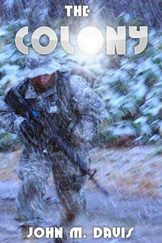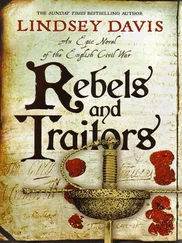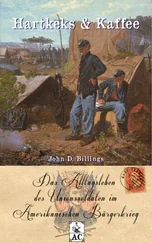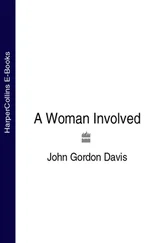Smith smiled grimly. ‘Nobody’s accusing you yet, Major. And we will ask the questions, if you please. But tell me – was your relationship happy?’
‘Very.’
Smith frowned. ‘But how did she feel about your military history? Fighting fox apartheid, against the freedom forces of Nelson Mandela – she was very anti-South Africa in her books.’
‘She understood that I never regarded myself as fighting for apartheid. I was a professional soldier fighting against the Cuban army, Russia’s surrogates in Africa who were helping the illegal communist regime of Angola fight the Angola freedom forces. The South African army was supporting those freedom fighters, and so was America, because it was no secret that the Cubans also intended to overrun South Africa and turn it into another communist state. That’s what I was fighting against.’
‘But,’ Humphrey said, ‘that also meant you were fighting for apartheid. And against the ANC who had bases in Angola.’
Harker dragged his hand down his face. ‘I knew apartheid was going to collapse soon. The greater evil was if the Cubans and Russians overran South Africa, taking the Cape Sea Route. The communists could already control Suez any time they wanted. Next to go would have been the Panama Canal. Then the communists would have had the whole world sewn up. So the important thing was to defeat the Cuban army in Angola, drive them out of Africa.’
‘But you and your famous wife never quarrelled about this?’
‘No.’
‘So when did you settle in America?’
Harker said tensely: ‘In 1986 I was wounded, and invalided out of the army. First I went to England and became involved in publishing. I came to America in 1987 and took over Harvest House. In 1988 I met Josephine and later started publishing her books. And we’ve lived happily ever after. Okay?’ He closed his eyes. ‘And now I want to go back to my boat and sleep.’
Humphrey said, ‘No, we’ve impounded your boat, Major, while the forensic scientist examines it, takes photographs and so on. You’ll have to sleep in a hotel tonight. So please tell us again what happened that night Josephine disappeared.’
Harker opened his eyes. ‘Jesus. I’ve told you twice.’
‘Again, please.’
‘Look, evidently you suspect me. So I want a lawyer.’
Smith smiled. ‘Why do you want a lawyer if you’re innocent, Major? Why are you scared of just telling us again what happened, if you’re telling the truth?’
Harker took a deep, tense breath. ‘You can’t put me to the expense of a hotel when I have my own boat.’
‘Okay,’ Humphrey smiled, ‘so I offer you a bed in the cells instead. It’s up to you. But I would be grateful if you came back here at noon tomorrow to resume our discussion. And I would be grateful for your passport, please …’
Harker had left his boat at anchor in the bay: now, on emerging from the police station, he found it chained to the government jetty, under guard. Policemen were aboard. He collected some things and checked into the Ambrosia boarding house.
At ten o’clock the next morning Jack Harker was arrested at the aerodrome attempting to board a flight to the French island of Guadeloupe. In his baggage was a .25 Browning pistol. His South African passport had been surrendered to Humphrey: he was using an expired passport which the police had not known he possessed. On his return to the police station he was further interrogated; finally he was formally charged with the murder of Josephine Valentine Harker.
A week later he was extradited to Florida to face trial.
The Back-story
In those days of apartheid many accidental deaths occurred in police custody – black suspects fell down stairs and cracked their skulls, or slipped on soap in the showers, or sometimes even threw themselves out of upper windows in a reckless attempt to escape. There was always an official inquest, as the law required, but the magistrate very seldom found anything suspicious, anything indicating reprehensible interrogation techniques by the police. The inquest into the death of Steve Biko, for example, evoked no judicial censure even though Biko was driven naked through the night, a thousand miles, in the back of an open truck, to a police hospital after he had sustained a fractured skull when he fell against a wall whilst irrationally attacking his police interrogators. In those days these accidental deaths were attributed by most of the white public to a few ‘bad apples’ in the police, though the frequency suggested that there must be a lot of them, but not too many questions were asked and there were no hard facts to gainsay police explanations.
Then deaths began to befall the apartheid government’s enemies outside the country, which were clearly not accidental: Professor Ruth First, wife of the leader of the South African Communist Party, was killed by a parcel bomb in Mozambique; Jeanette Schoon, wife of an anti-apartheid activist, was blown to bits, together with her little daughter, by another parcel bomb in Angola; Dulcie September died in a hail of bullets in Paris as she opened the offices of the African National Congress; Dr Albie Sachs, anti-apartheid activist, had his arm blown off by a car-bomb in Mozambique; Advocate Anton Lubowski, another anti-apartheid politician, was gunned down outside his home in Namibia on the eve of his country’s independence from South Africa. The press, particularly the international press, argued that the pattern of these murders suggested they were the work of the South African government, but this was hotly denied. But then there were a number of explosions: at the London headquarters of the African National Congress, and at Cosatu House in Johannesburg, headquarters of the Congress of South African Trade Unions. Khotso House, also in Johannesburg, the headquarters of the South African Council of Churches, was bombed; Khanya House, headquarters of the South African Bishops’ Conference in Pretoria, was set on fire. Who were the people committing all these crimes? The government blamed it all on black political rivalry and ‘Godless communists’; others blamed it on those bad apples in the police; only a few believed it was government policy to murder and destroy its enemies and their property, and they largely kept their mouths shut because of the security police. For those were the days of the Brezhnev Doctrine, the Cold War in which Africa was the major battleground, most of Africa being communist-sponsored one-party dictatorships, the era of the Total Onslaught Total Strategy, the total strategy to combat the total onslaught of the ungodly communist forces of darkness bent on overthrowing Western democracy and the Godly principles of apartheid. The security police could detain anyone for 180 days without trial, and then another 180 days immediately afterwards, and then another, and so on until, in the words of the Minister of Justice, ‘the far side of eternity’. There was freedom of speech in parliament but precious little outside; radio and television were government-controlled, the press had to watch its step and foreign journalists who wrote unkindly about apartheid were unceremoniously deported.
And one of those deported was the beautiful Josephine Valentine.
Major Jack Harker had heard of her for years – the legendary heart-throb Josephine Valentine, the long-legged American blonde with the dazzling smile who collected wars and war heroes, the beautiful busty photo-journalist in sweat-stained khaki who always managed to wangle a helicopter ride into battle-zones denied to others by using charms pressmen don’t possess. She had a formidable and exotic reputation which lost nothing in the telling: while it was not true that she had been a high-priced hooker in New York, as alleged by certain members of the press, it was probably true that she always managed to be in the right place at the right time to get her spectacular pictures by screwing the right officer. It was said of her that she collected war heroes – but ‘warriors’ would have been a better word. She never had a lengthy relationship with her conquests: she used them, thanked them and left them with a broken heart.
Читать дальше












